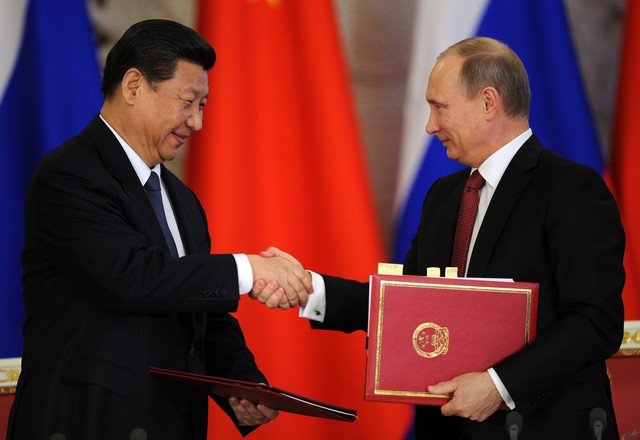 Parler
Parler Gab
Gab
Western Europe celebrates loss of Russian gas because it will help the EU maintain consistency with its "climate ambitions"
The "European customer" in question, by the way, is Germany, Europe's largest economy. And it turns out that a force majeure was sent from Gazprom to at least three buyers total, one of which is Uniper. Uniper says it does not accept the force majeure because it is invalid. The company has thus formally rejected the claim, which cites both current and past shortfalls in gas deliveries as being outside their control. The new letter appears to be a legal release from supply obligations in anticipation of a July 22 "doomsday," the date on which it was already expected that Gazprom would keep the tap off rather than return NS1 back to normal service. Germany has already been taking unprecedented steps in anticipation of gas shortfalls, including limiting hot water use, shutting down swimming pools and dimming city street lights as it enters the "alarm" stage of its dwindling gas supplies. UBS economists released a detailed vision of what they see happening in the event of an indefinite or permanent NS1 shutdown, including a 15 percent reduction in corporate earnings. "The market selloff would exceed 20% in the Stoxx 600 and the euro would drop to 90 cents," reports indicate. "The rush for safe assets would drive benchmark German bund yields to 0 percent." The euro already touched parity with the dollar for the first time since 2002, and there appears to be more room for it to drop in the coming days. Hilariously, the Paris-based International Energy Agency (IEA) is focusing not on this "red alert crisis" and what it will do to the economy of Western Europe, but is instead highlighting how the loss of much-needed gas is "consistent with the EU's climate ambitions." In other words, even though the shutdown of NS1 will absolutely decimate Germany and other Western European countries that rely on Russian gas to thrive, the IEA is celebrating this because it will supposedly help stymie "global warming" and "climate change." "Dear German citizens, be sure to let your politicians know how much you appreciate them," wrote a commenter at Zero Hedge about the insanity of this whole situation. "And don't forget to get boosted," joked another. "Greta should love Putin: he's making sure Germany's greenhouse gas emissions drop significantly!" joked yet another, referring to climate extremist Greta Thunberg. The latest news about the collapse of Europe's energy supply can be found at FuelSupply.news. Sources for this article include: ZeroHedge.com NaturalNews.comRussia and China officially announce a “new global reserve currency”
By News Editors // Share
German government admits COVID vaccines cause severe side effects
By Kevin Hughes // Share
Food collapse, labor shortages affecting restaurants all over the country
By Arsenio Toledo // Share
Chinese social media censors posts about protests sparked by country’s mortgage crisis
By Mary Villareal // Share
Craig Idso: High CO2 in summer lessens temperature stress in plants
By Belle Carter // Share
Governments continue to obscure COVID-19 vaccine data amid rising concerns over excess deaths
By patricklewis // Share
Tech giant Microsoft backs EXTINCTION with its support of carbon capture programs
By ramontomeydw // Share
Germany to resume arms exports to Israel despite repeated ceasefire violations
By isabelle // Share










